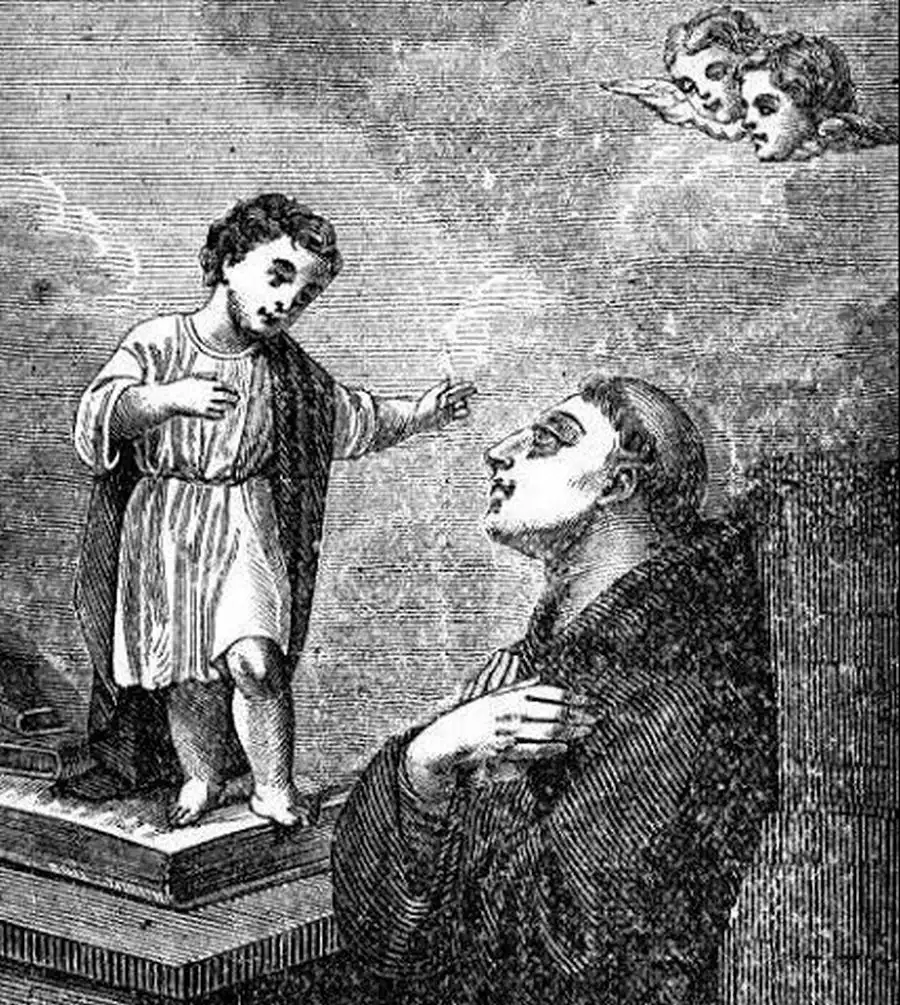
Saint Paschasius Radbertus, a pivotal figure in the Carolingian Renaissance, was born circa 785 and passed away in April 865. His theological work, particularly regarding the doctrine of the Eucharist, has significantly shaped Christian thought. As a monk and later abbot of Corbie Abbey, Radbertus dedicated his life to theological study, leaving an indelible mark on ecclesiastical history.
The Eucharistic Doctrine and Paschasius Radbertus
In the ninth century, the concept of the Eucharist underwent a profound transformation, largely due to Paschasius Radbertus’s theological discourse. His pivotal treatise, “De Corpore et Sanguine Domini” (On the Body and Blood of the Lord), published around 831, emerged as a cornerstone in the development of the doctrine of transubstantiation. This doctrine posits that during the Eucharist, the bread and wine are transformed into the body and blood of Christ, a belief that has become central to many Christian denominations.
Radbertus’s interpretation of the Eucharist challenged existing perceptions, sparking debates that would endure for centuries. His views emphasized the real, physical presence of Christ in the Eucharist, a stance that diverged from earlier symbolic interpretations. This theological shift underscored a deeper understanding of the sacrament’s mystery, influencing the liturgical practices and devotional life of the Church.
The impact of Radbertus’s work was not confined to his era. His contributions to Eucharistic theology continued to resonate throughout the Middle Ages and into modern times, underscoring his role as a pivotal figure in the theological and spiritual landscape of Christianity. His arguments, deeply rooted in scriptural and patristic sources, offered a nuanced and profound insight into the nature of one of Christianity’s most sacred rites.
Legacy and Influence of Paschasius Radbertus
Saint Paschasius Radbertus’s influence extended beyond the boundaries of his own time, leaving a lasting legacy in Christian theology. His meticulous exploration of the Eucharist not only shaped liturgical practices but also stimulated theological discourse for subsequent generations. His approach to the Eucharist, focusing on the real presence of Christ, paved the way for deeper spiritual engagement and understanding within the Christian community.
Radbertus’s writings, characterized by their doctrinal depth and scriptural basis, continue to be a source of study and reflection in theological circles. His work remains a testament to the intellectual vibrancy of the Carolingian Renaissance and its enduring impact on Christian thought.
Saint Paschasius Radbertus, through his groundbreaking work on the Eucharist, established himself as a central figure in Christian theology. His contributions, rooted in a deep understanding of scriptural and patristic traditions, have had a profound and lasting effect on the Christian understanding of this key sacrament. Radbertus’s legacy endures, a testament to his scholarly rigor and spiritual insight.
Feast Day: April 26
References
Cabaniss, A. Paschasius Radbertus: A Study in Carolingian Theology.” Publisher: University of North Carolina Press, 1967.
Gumerlock, F. “The Theology of Paschasius Radbertus: Liturgical Tradition and the Eucharistic Debate.” Publisher: Liturgical Press, 2009.
Southern, R.W. “Western Society and the Church in the Middle Ages.” Publisher: Penguin Books, 1990.
Wallace-Hadrill, J.M. “The Frankish Church.” Publisher: Oxford University Press, 1983.
